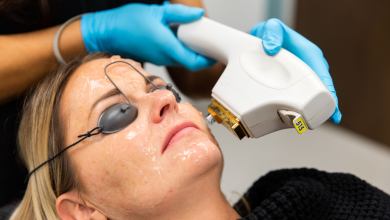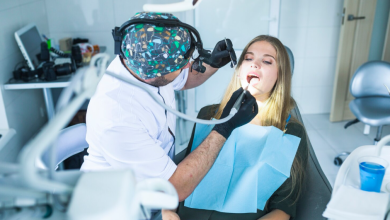
As millennials navigate their 30s, a noticeable shift is happening—one that revolves around a heightened awareness of health and well-being. Once characterized by avocado toast and a fast-paced lifestyle, this generation is now rethinking priorities, making room for fitness, nutrition, mental wellness, and preventive healthcare. This transformation isn’t just a passing phase—it reflects deeper socioeconomic, psychological, and cultural shifts that are redefining what health means to a generation sandwiched between youthful rebellion and adult responsibility.
The Turning Point: Why Now?
Entering their 30s marks a major life transition for many millennials. It’s a decade filled with career progression, home ownership, parenting, and an increasing sense of mortality. Suddenly, the body doesn’t bounce back as quickly after a late night or poor meal. Hangovers linger longer, metabolism slows, and minor health issues become harder to ignore. For many, this decade is a wake-up call.
Unlike previous generations, millennials grew up in the digital age. This makes them uniquely equipped to research symptoms, read health blogs, track fitness metrics, and crowdsource advice through social media. They are constantly bombarded with wellness content—some accurate, some not—which influences their understanding of what it means to live a healthy life.
Mental Health in the Spotlight
Perhaps the most distinctive marker of millennial health consciousness is the emphasis on mental well-being. This is the therapy generation. Unlike their parents, who may have stigmatized mental health issues, millennials openly discuss anxiety, depression, and burnout. Apps like Headspace and Calm have become household names, and many workplaces now offer mental health days and access to counseling services.
This shift is partly due to the pressures millennials face—skyrocketing student debt, housing costs, job instability, and the constant presence of social media. These stressors have driven millennials to seek tools for resilience and balance. Mindfulness, journaling, therapy, and even psychedelic-assisted therapy have entered the wellness lexicon.
From Party Culture to Protein Powder
Millennials in their 30s are also reevaluating their relationships with substances. Where binge drinking and nightlife once reigned, many now lean toward sobriety or moderation. The rise of “sober-curious” lifestyles is a direct response to the understanding that alcohol takes a toll on physical and mental health. Similarly, many have transitioned from traditional cigarettes to vapes, viewing them as a less harmful alternative that aligns better with their broader health-conscious goals.
Fitness, once sporadic or even absent, has become a regular part of life for many in this age group. Whether it’s through boutique gyms, yoga studios, Peloton bikes, or weekend hikes, millennials are more likely to exercise regularly now than in their 20s. Social media trends, wearable fitness trackers, and the desire to stay active for future family life all play roles in this cultural shift.
Food as Fuel
Millennials are redefining nutrition, embracing whole foods, plant-based diets, and organic choices. This generation is behind the explosion of oat milk, kale smoothies, and gluten-free everything—not always because of allergies, but often as a personal health choice.
In their 30s, many millennials are also cooking more at home, seeking out clean-label brands, and becoming more skeptical of processed foods. Apps that track calories, macros, or even gut microbiome health are becoming mainstream, and functional foods like probiotics, adaptogens, and superfoods are growing in popularity.
Food is no longer just about taste or convenience—it’s about performance, mood, and long-term health.
Preventive Health Takes Center Stage
In their 30s, millennials are realizing the importance of prevention over treatment. Annual checkups, dental cleanings, bloodwork, and skin screenings are no longer ignored or postponed. This is the age when many discover underlying conditions like thyroid disorders, insulin resistance, or early signs of cardiovascular issues—and they want to stay ahead of it.
Telehealth has played a massive role in this trend. Millennials, who are digital natives, appreciate the convenience of virtual consultations. They’re also more inclined to research symptoms online and follow health influencers, which makes them better informed (though not always better advised).
Wearable technology has added another layer to this awareness. Smartwatches, fitness trackers, and even smart rings offer data on heart rate, sleep patterns, activity levels, and more. With this constant feedback loop, health becomes a part of daily consciousness rather than a once-a-year consideration.
The Holistic View
Millennial health awareness is not just about fixing what’s broken—it’s about optimizing life. This generation embraces a holistic approach that includes physical health, mental clarity, emotional well-being, and even spiritual balance. Self-care routines, sound baths, breathwork classes, and plant medicine retreats are becoming more popular, especially in urban areas.
This shift has also changed the way millennials engage with healthcare providers. They want doctors who listen, explain, and collaborate rather than dictate. There’s a demand for integrative and functional medicine that treats the whole person, not just the symptoms.
Challenges and Contradictions
Despite this increasing awareness, millennials face significant obstacles. Healthcare costs remain high, especially for those without comprehensive insurance. Misinformation online can lead to poor choices or overreliance on unverified remedies. And wellness culture can sometimes feel elitist, accessible mainly to those with time and money.
Moreover, the pressure to be constantly optimizing—body, mind, and career—can lead to its own form of stress and burnout. The pursuit of “perfect health” can paradoxically become unhealthy.
Conclusion: A Generation Redefining Wellness
Millennials in their 30s are not simply getting older—they’re getting wiser about what health really means. They are the generation blending technology, transparency, and personal experience into a unique wellness movement. Whether through therapy apps, organic groceries, or fitness challenges, they are investing in themselves with a long-term view. Health is no longer an afterthought—it’s a foundation.
As this generation continues to age, their proactive and holistic approach could reshape healthcare, wellness industries, and even public policy. Millennials are proving that awareness isn’t just about knowledge—it’s about action.



